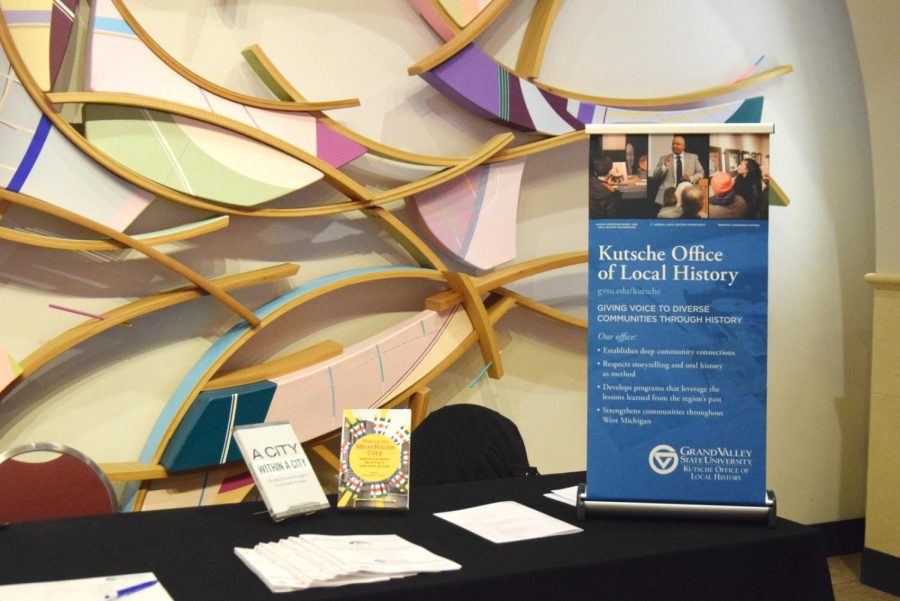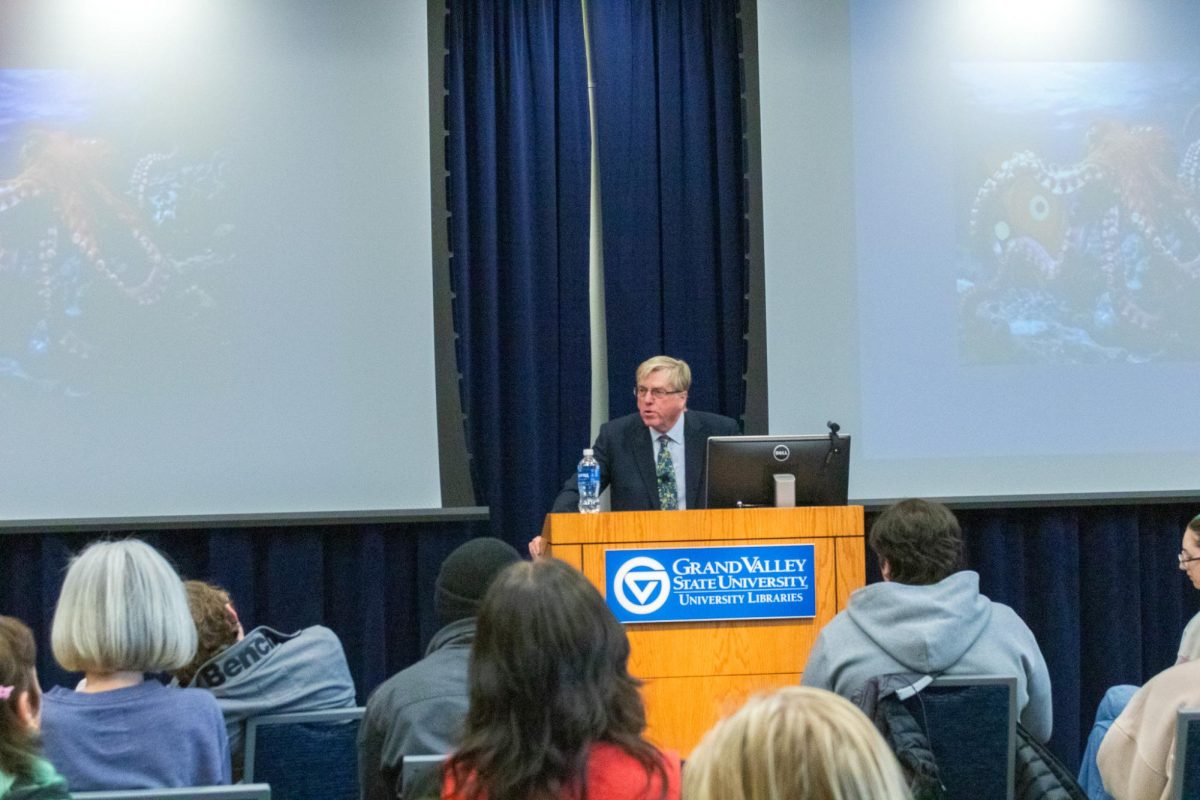Local history event encourages students to learn about the past, improve the future
Mar 27, 2023
The Grand Valley State University’s Kutsche Office of Local History aims to highlight the histories of underrepresented populations in West Michigan through community connections, storytelling and preservation of documents and archives. Their mission is to provide a platform to diverse communities through history.
Throughout the school year, the Kutsche Office hosts events and invites guest speakers to educate students and staff on topics regarding West Michigan history.
This past week, they held their Local History Roundtable, an annual event that aims to create discussions about the history of different races, genders and communities. The focus of this year’s event was “Our West Michigan Histories.” Guest speakers discussed historic poor houses in Ottawa and Van Buren County and Civil Rights pursuits in Grand Rapids and Muskegon.
The keynote presentation included a discussion with Dr. Delia Fernández-Jones, a Michigan State University professor and Grand Valley State University graduate who recently released a book called “Making the MexiRican City: Migration, Placemaking and Activism in Grand Rapids, Michigan.”
Fernández-Jones discussed the history of Mexican and Puerto Rican identity in Grand Rapids, including their origins and the values placed in community. She addressed how traditions helped to shape the role “MexiRicans” play in West Michigan today.
Fernández-Jones said she became acquainted with the Kutsche Office after her graduation from GVSU and was interested in helping contribute to their office’s mission of “trying to uncover the voices of people who are not typically showcased in our local history and the way we imagine local history.”
“I feel like my work really aligns with their mission, and I am always looking for a platform to tell this story about Latinos/Latinx in this community, so it was an honor to talk at the Kutsche Office’s Annual Roundtable,” Fernández-Jones said.
During the presentation, Fernández-Jones talked about discrimination, imperialism and displacement as precursors to both Mexican and Puerto Rican migration north throughout the 20th century, seen as early as the 1920s.
“Mexicans and Puerto Ricans are often referred to as ‘new,’ but there is evidence of us being here for the last one hundred years, at least,” Fernández-Jones said.
Additionally, Fernández-Jones distinguished the difference between Mexican and Puerto Rican history in West Michigan, two communities that are often lumped together without recognition for different traditions or cultures.
“We think about Latino’s as an umbrella group, but it was not just like they got here and were automatically like ‘yes we are the same,’” Fernández-Jones said. “So it’s the experiences (discrimination and displacement) but also the shared cultural commonalities. It’s not the same Spanish, but it is Spanish in a place where not a lot of people speak it.”
Fernández-Jones said religion and community spaces play a role in creating the MexiRican identity seen in Grand Rapids today, and that interacting with neighbors and passing oral traditions is the strongest way to build community.
“The parties that happen in living rooms are very important because that is really where communities form,” Fernández-Jones said. “Those are the ways we are really able to create these bonds and build community.”
Fernández-Jones also touched on the important role that women played in creating the MexiRican community in Grand Rapids. She said many women passed down the knowledge of cultural traditions and practices such as dances, recipes, songs and stories which help strengthen the MexiRican identity.
Fernández-Jones said it’s very important for people to understand the local environment and the history they live in in order to create a society where everyone has equal opportunities.
She encouraged GVSU students to become invested in what’s happening in the greater Grand Rapids community in order to create change.
“You are in a more powerful position than you might think because you are a constituent of the university,” Fernández-Jones said. “So you have power in asking that this university do the right thing.”























